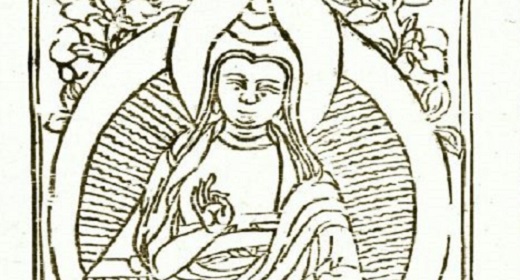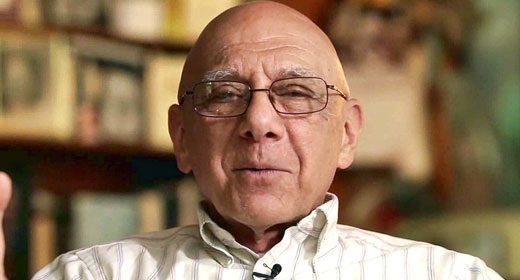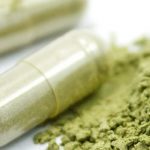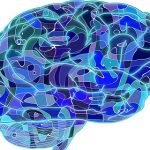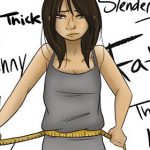by Christiane Northrup, M.D: A 5 Minute Self-Compassion Exercise to Help with Recovery… 
If you or someone you love has an addiction, you are not alone. According to a Columbia University study, 40 million Americans age 12 and over meet the clinical criteria for substance abuse, whether it’s an addiction to nicotine, alcohol or other drugs. That’s more Americans than those with heart disease, diabetes or cancer! In addition, it’s estimated that 80 million Americans are “risky users,” meaning that while they don’t meet addiction criteria, they use tobacco, alcohol and other drugs in ways that potentially threaten their health and safety, and the health and safety of others. Many addicts have a similar background, such as some form of trauma, sexual abuse, experimental use of drugs in college, even the stress of too much fame and fortune as we see so often with celebrities. The one common thread is that addiction is all about self-medicating to cope with pain – whether that pain is physical or emotional.
Popular Substance Abuse Recovery Programs
When a person with an addiction seeks treatment, odds are they will be directed to a 12-step recovery program such as Alcoholics Anonymous (AA), Narcotics Anonymous (NA) or similar spiritual approach to recovery. The AA model was developed by Dr. Bob Smith and Bill Wilson in 1935, and remains the traditional model for addiction recovery in the U.S. It works like this: You admit that you are powerless over the substance or situation, you recognize that a higher power can restore your sobriety, you examine past mistakes with the help of a sponsor and make amends, then you learn to live by a new code of behavior and agree to help others who suffer from the same addiction.
There are other popular out-patient addiction recovery approaches as well. These include motivational techniques, cognitive behavioral therapy (CBT) and SMART Recovery, a support group model that employs a 4-Point program of building and maintaining motivation, coping with urges, managing thoughts, feelings and behaviors, and living a balanced life. Unlike AA, SMART Recovery does not accept that individuals are powerless, but rather helps participants find their strengths and use them. In addition, there are traditional in-patient rehab programs that last from 28-90 days.
This is known as the Hazelden model. (Hazelden merged with The Betty Ford Center in 2014.) There are also many integrative facilities today as well that offer non-traditional solutions. Finally, medication-assisted programs are also available. These offer medications such as naltrexone, acamprosate, methodone, and buprenorphine (which is taken under the tongue by people addicted to pain medication and heroine,) to reduce cravings, deter use and help prevent relapse. When all else fails, there is jail! Of course, this usually is not a solution.
Why Doesn’t The Status Quo Work?
With all of the options available, why do many people remain addicted or relapse? One reason is because most of the addiction recovery programs in the U.S. are based on the “chemical hook” theory of addiction – that certain substances are addictive and if you use them, you will become addicted. This is for the most part a fallacy. Anyone who has had surgery has taken a good amount of heroin in the form of diamorphine! And yet most people who have had surgery are not heroin addicts. Now, there are some people who truly may have a physical addiction to a drug – I have a friend who was given morphine in the hospital at age 10 and says it was the best feeling ever.
But, most people who become addicts have something else going on so that the standard “chemical hook” approach to drying out and avoiding the substance you are addicted to — whether you use a 12-step program, rehab, a medical approach or some combination — doesn’t work. In fact, many people recover from addiction to one substance, then become addicted to something else, such as sex, smoking cigarettes, or working too much. This supports the theory that pain, whether it’s physical pain or emotional pain – both of which register in the same parts of the brain – is the root cause of addiction, not the substance itself. In other words, what addicts are really doing is avoiding pain by using or doing something that makes them unable to feel it.
How Divine Love Can Heal Addictions
My good friend and colleague, Robert Fritchie, Founder of The World Service Institute, has helped many people overcome addictions using Divine Love healing energy. In fact, he helped a well-known rock star who had a cocaine addiction and didn’t want to risk media exposure by entering rehab! (The rock star remains drug free!) Divine Love healing uses the Creator’s Love to facilitate healing. Using a Divine Love petition in which you direct your energy toward your healing, you are able to bring the Creator’s Love to you. It works for everyone because we are all made of energy that is influenced by our experiences and our thoughts.
So just as our energy can manifest as disease, including addiction, it can be influenced to heal. Divine Love petitions give you the power to readjust your energy to maximize your health. In order for Divine Love to work, you must access your own personal will. You are responsible for your own healing. Will is at the core of the self. So, on a soul level, you need to develop a personal will to get better. And, that personal will needs to be aligned with Divine Will. In addition, you must believe in the Creator or a power higher than yourself. However, you do not need to be religious. Finally, when you use the Divine Love petitions to help with symptoms, you do not state a diagnosis (unless it is something like cancer.) You simply ask the Creator to heal the source of your symptoms or pain. To learn more about using Divine Love, go to Bob’s website and do the free healing program listed there. Better yet, sign up for one of his webinars. They’re worth every penny.
9 Steps You Can Take To Overcome Addiction
There is a ton of information out there about addiction recovery, and there are always new theories and science that lead to new programs. Recommending the best program or way to recover from addiction is a loaded topic because each individual will respond to something different. It’s important to know that there is no right or wrong approach – in fact, the only right approach is the one that works for you! Its also worth mentioning that there are many stories of recovered addicts who quit using without the help of any recovery programs! Some have turned to their churches or have received paid incentives for clean drug tests. Some have received psychiatric help or used cognitive behavioral therapy. And there are even people who simply “outgrew” their addictions. These people are usually those who used drugs and alcohol in their teens and 20s and then found a life that was more fulfilling, either through meaningful relationships, work, or other interests. With all that in mind, here are some steps that you can take to help with recovery:
- Don’t Play the Blame Game. It is easy to place blame when in the throes of addiction or when dealing with an addict. It’s important to understand that the addict is not to blame for his/her addiction, but that s/he must take sole — and soul — responsibility for recovering from it.
- Be Patient. It may take more than one attempt to get it right. Some days may be harder than others. Every effort you make is a step towards your goal, and it is an essential part of the journey. Even if someone is not yet ready to change, but they take a few steps toward recovery, they are receiving tools that can help them later on.
- Research Recovery Programs. There is no one way to treat addiction. What works for one person, or even many people, may not be right for you or your loved one. In addition, what works for someone who is addicted to heroin may be different than what works for an alcoholic. What works for men may be different than what works for women. And teens may need a completely different approach.
- Get Support. Addiction is not an acute illness. Use the resources available to you to get the support you need. These may include outpatient treatment programs, counseling, and support groups such as AA. There are also church and community groups and even online groups that may be able to help.
- Move Your Body. Exercise is an important part of any healthy lifestyle. Some people recover from alcohol and drugs with exercise alone simply because they don’t want to feel bad every day when they try to move their bodies. This is especially true for athletes who have had addiction problems. For the average person, 30-60 minutes of walking outside every day will do wonders.
- Eat a Balanced Diet. In addition to exercise, eating right is another key ingredient to a successful recovery. When you improve your diet your blood sugar will stabilize, which can help reduce cravings for alcohol and improve your mood.
- Explore Alternative Healing Approaches. Many people who recover have stories of unique approaches that are not mainstream. There are many holistic approaches that can help with addiction recovery. Some of these include acupuncture, aromatherapy, herbs, journaling, being in nature and meditation. Anything that will reduce stress will improve your mental and physical well being. This does not mean you should not also seek a professional treatment plan if needed.
- Put Yourself First. If you are trying to recover from an addiction, it’s important to make yourself your number one priority. So, give yourself time and space to do what you need to do. You may need to distance yourself from friends, seeks out new ways to stay busy and active, or rely heavily on your family and friends. And remember, recovery is a process, not a destination.
- Give Divine Love a Try. Divine love is accessible to everyone and it the most powerful form of healing. People often have profound experiences of emotional release and also physical healing, including healing from addiction. And, as Bob Fritchie points out, the more people involved, the better. So you can use Divine Love to help someone you love even if they are not ready to use it themselves. I love the idea of being able to tune into and utilize this energy on behalf of myself and others. To learn more, click here.
A 5-Minute Self-Compassion Exercise
One of the most important things you can do when dealing with an addiction is to offer yourself compassion. This exercise only takes 5 minutes and you can do this anytime you need to re-center or bring some compassion to yourself.
- Call To Mind A Moment of Suffering. Remember a specific time or event where your addiction (or someone else’s addiction) has caused you suffering. Acknowledge it by saying “this is a moment of suffering.” You may use your own words, such as “this is hard,” or “this really hurts.” Allow yourself to feel it.
- Admit That Suffering Is A Part of Life. This does not mean you need to suffer, it just means that is it a normal part of being a human being and that we all experience suffering at times. Acknowledge that it is normal to feel what you are feeling. You can say “it’s ok to feel this way,” or “I am normal for the feeling what I feel right now.”
- Allow Compassion To Flow. Put your hands over your heart. Feel the warmth and gentle touch of your fingers. Imagine love streaming out through your hands to your body. Say “may I be kind to myself.” Again, you may use your own language or even imagine that you are speaking to a friend. You may say “I am here for you,” or “I care about you,” or “I am sorry.”
- Notice How Your Body Feels. Allow yourself to be in the moment and take notice of how you feel. Offering compassion toward yourself may bring up strong emotions. Sit with whatever comes up and then release any difficult emotions to make space for love and joy to flow.


